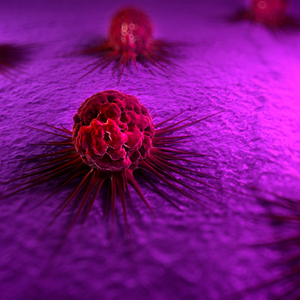Anal Cancer

Anal cancer is an uncommon cancer of the anal canal which is a short tube that connects to the rectum.
Anal cancer is closely associated with a sexually transmitted infection called human papillomavirus (HPV) which is detected in the majority of anal cancers.
Risk Factors
- Older age (50 or older).
- Human papillomavirus (HPV) infection (86-97% of all anal cancers).
- History of previous cervical, vulvar or vaginal cancer.
- Receptive anal intercourse.
- Many sexual partners.
- Chronic local inflammation: those with anal fistulas or open wounds that last a long time have a slightly higher risk for anal cancer.
- Smoking.
- Lowered immunity due to certain conditions such as HIV infection or medications.
Symptoms
- Anal bleeding.
- Anal pain.
- Anal itching.
- Feeling of a lump or mass in the anus.
- Change in bowel habits (going to the bathroom more or less frequently) or increased strain during bowel movement.
- Narrowing of the diameter of stool.
- Abnormal discharge from the anus.
- Swollen lymph nodes in the anal or groin areas.
Treatment
Once anal cancer is diagnosed, scans including CT scan, MRI and PET (positron emitting scan) are necessary to determine the stage of the cancer. Treatment of the cancer is individualized based on the stage but it typically involves several week courses of a combination of chemotherapy and radiation treatments. Surgery for removal of cancer is occasionally considered based on the stage of cancer.
Prevention
- Smoking cessation.
- Safe sex practices.
- Human papilloma virus (HPV) vaccination.
FAQs
Anal cancer is a type of cancer that starts in the anus, which is the opening at the end of the digestive tract where feces are eliminated from the body.
Symptoms of anal cancer may include anal bleeding, pain or pressure in the anus, a lump or mass in the anus, itching or discharge from the anus, and changes in bowel movements.
The exact cause of anal cancer is not known, but certain risk factors may increase the likelihood of developing anal cancer. These risk factors include a history of certain types of sexually transmitted infections (such as HPV or HIV), smoking, a weakened immune system, and having a family history of anal cancer.
Anal cancer may be diagnosed through a physical examination, a biopsy (removal of a small piece of tissue for testing), imaging tests (such as an MRI or CT scan), and blood tests.
Treatment for anal cancer is primarily with a combination of chemotherapy and radiation or as solo therapies. Treatment options may include surgery to remove the cancerous tissue. The specific treatment plan will depend on the stage and location of the cancer, as well as the patient’s overall health.
The prognosis for anal cancer depends on the stage of the cancer and the patient’s overall health. In general, the earlier the cancer is detected and treated, the better the chances of a positive outcome.
There are no sure ways to prevent anal cancer, but certain behaviors (such as practicing safe sex and not smoking) may lower the risk of developing anal cancer. It’s also important to get regular screenings to detect any abnormalities or changes in the anus or rectum early on.